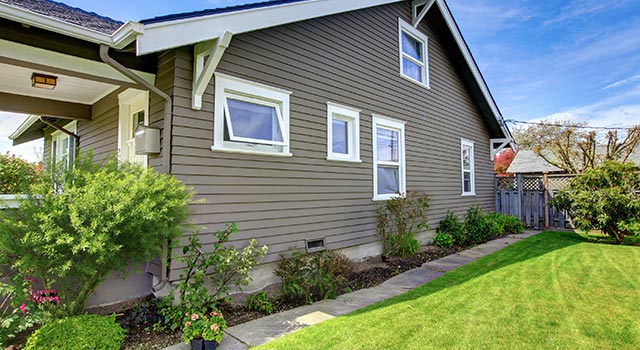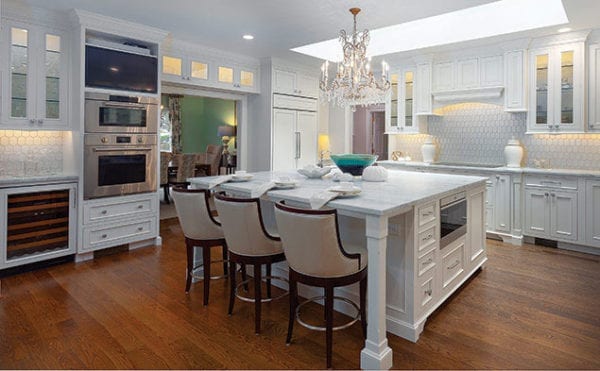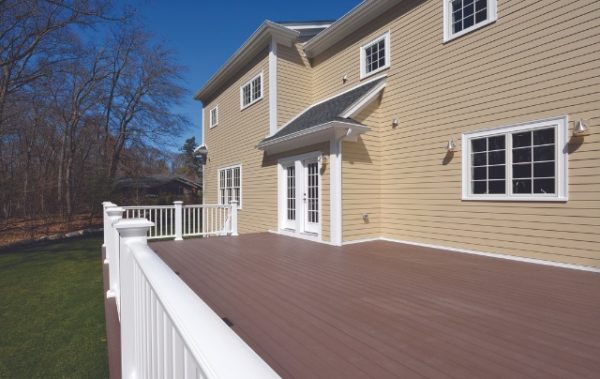Expert Tip Monday: Should you stay or should you go?
Categories: Blog

How much green is in your home right now?

Sure, the market's on the upswing – but does that mean you should think about selling your home right now?
Today's expert tips will help you decide. Our friends at Homes.com put together this thought-provoking list of the Top 10 Reasons to Sell – or Keep – Your Home. Here it is…
_______________________
You should consider selling if:
1. Size Is a Problem
There are many quick fixes that can be done to homes, but if size is a problem, moving up and out may be the best option. Renovating and adding more space to a home can be a very costly and overwhelming project. While home remodeling is typically a long term positive investment, expect to recoup anywhere from 45% – 75% in additional home appreciation, depending on the project, according to remodeling.com. However, additions and renovations do not result in immediate recoup of costs, a deterrence if planning to sell immediately. Plan to recoup Growing families can mean cramped quarters and space becomes extremely valuable. If the main concern about a home is size, a more affordable, less stressful option may be to sell and find a home with enough space to accommodate the family.
2. Deferred Maintenance
Do you see only costly projects when looking around the house? It may be time to consider moving. Minor repairs and changes can freshen up the look and feel of a house, add equity and increase a home’s longevity. But, if the amount of necessary renovations to stay in your current home seems overwhelming, it may be time to part ways. If a home is older than 10 to 15 years, new roofing, among other large-scale projects, may be necessary. According to Choice Roofing Group, a new roof can cost anywhere from $5,000 to $30,000 or more, depending on size of the home, style of roof and type of roofing material chosen. Having outstanding home issues may decrease the amount a home will sell for on the market, but on the bright side, plenty of home seekers love a good fixer-upper, giving them the opportunity to customize and turn a ‘diamond in the rough’ into a dream home.
3. Beat the Competition
It’s no secret that the housing market is steadily bouncing back.The U.S. economy continues to show recovery, and an increasing number of people are finally able to buy the home they want and put their current homes on the market. Competition for selling homes will continue to increase as the market continues to improve. If anxious to sell a home, some homeowners, depending on location, may be able to take advantage of what is considered a “seller’s market.” Do a little research; tools like the Homes.com Home Values Channel can help determine how much a home is worth, as well as those in the area. Then, work with a local, licensed real estate professional to determine a competitive price point, and let the bidding begin.
4. Change of Lifestyle
Just as a growing family needs more room, a shrinking family might mean it’s time to downsize. Whatever the reason, a home that’s just the right size is important, but that size varies depending on the family that’s in it. Retired and looking to travel? Downsizing may be the perfect way to free up disposable income for world adventure. A lifestyle change, whether it’s a job relocation, or change in the family dynamic, represents the perfect opportunity to create new memories in a new home and maybe even discover additional amenities and features that your current home may be lacking.
5. Increased Housing Demand and Tightening Supply
While personal finances are a major concern when debating whether or not to sell a home, choices are also a major deciding factor. Since demand is increasing in the U.S. housing market and supply is tightening, now is the ideal time to search for a dream home in the perfect neighborhood. New construction is on the rise in many of the country’s top cities, a great sign for the economy and housing market. As demand picks back up, builders are ready to keep up and that means brand new homes for sale while prices remain competitive. New construction also means many options are available at varying price points throughout the country.

Stay in the Home If…
1. Equity Will Increase
As the market continues a steady climb towards recovery, home equity across the nation should continue to see positive signs of growth. As reported by the The Homes.com Local Market Index, year-over-year growth reached 8 percent at the end of 2013. Homeowners already in love with their place should continue to enjoy the comforts of home and reap the benefits of increased equity when the time does come to sell.
2. The City is Growing
As the economy picks back up, cities are able to invest more in revamping and improving areas. If you are currently living in a growing city, it may be wise to stay put. Watch the neighborhood and economy grow for a year or two and then decide if it will be profitable or a good family decision to make a change. Also, as the city grows, so will home equity in area neighborhoods. Watching the neighborhood improve may even change minds about staying in the current home, continuing to build equity and create memories.
3. Projects & Updates Are Enough
Many homeowners are quick to sell a house because updates need to be made or projects seem too overwhelming. Instead of viewing updates as impossible, view them as an opportunity to add value to the home. Whether repairs are minor or major, research the most economical way to tackle each issue. Making small or large improvements will also make a home feel brand new, and provides amazing satisfaction and enjoyment for a “new” home.
4. Location, Location, Location
Many factors play into the decision of selling or staying in a home, often times going beyond money and the economy. If the neighborhood and neighbors are a large part of the perks of the current home, stay put and enjoy it. When considering the family, school districts are also vital.
If currently zoned for great schools, it may be best to stay, so children can benefit from exceptional education. Proximity to work and other daily life activities also plays a role in the decision making process.
5. The Perfect Home Isn’t on the Market Yet
Patience is key in today’s marketplace. Even those who have outgrown homes and are ready for something new shouldn’t be afraid to wait another year or two before selling. Not only will the value of the current home continue to increase, but also, more sellers enter the market every day, providing a greater selection of inventory. If the perfect home is not on the market, don’t settle for a home that isn’t “just right,” especially if the current home is not unbearable. When the time is right to buy, the perfect home will be waiting, and with the potential for increased equity in the current home, it may be even easier to afford.
Consider Selling If…
1. Size Is a Problem
There are many quick fixes that can be done to homes, but if size is a problem, moving up and out may be the best option. Renovating and adding more space to a home can be a very costly and overwhelming project. While home remodeling is typically a long term positive investment, expect to recoup anywhere from 45% – 75% in additional home appreciation, depending on the project, according to remodeling.com. However, additions and renovations do not result in immediate recoup of costs, a deterrence if planning to sell immediately. Plan to recoup Growing families can mean cramped quarters and space becomes extremely valuable. If the main concern about a home is size, a more affordable, less stressful option may be to sell and find a home with enough space to accommodate the family.
2. Deferred Maintenance
Do you see only costly projects when looking around the house? It may be time to consider moving. Minor repairs and changes can freshen up the look and feel of a house, add equity and increase a home’s longevity. But, if the amount of necessary renovations to stay in your current
home seems overwhelming, it may be time to part ways. If a home is older than 10 to 15 years, new roofing, among other large-scale projects, may be necessary. According to Choice Roofing Group, a new roof can cost anywhere from $5,000 to $30,000 or more, depending on size of the home, style of roof and type of roofing material chosen. Having outstanding home issues may decrease the amount a home will sell for on the market, but on the bright side, plenty of home seekers love a good fixer-upper, giving them the opportunity to customize and turn a ‘diamond
in the rough’ into a dream home.
3. Beat the Competition
It’s no secret that the housing market is steadily bouncing back.The U.S. economy continues to show recovery, and an increasing number of people are finally able to buy the home they want and put their current homes on the market. Competition for selling homes will continue to increase as the market continues to improve. If anxious to sell a home, some homeowners, depending on location, may be able to take advantage of what is considered a “seller’s market.” Do a little research; tools like the Homes.com Home Values Channel can help determine how much a home is worth, as well as those in the area. Then, work with a local, licensed real estate professional to determine a competitive price point, and let the bidding begin.
4. Change of Lifestyle
Just as a growing family needs more room, a shrinking family might mean it’s time to downsize. Whatever the reason, a home that’s just the right size is important, but that size varies depending on the family that’s in it. Retired and looking to travel? Downsizing may be the perfect way to free up disposable income for world adventure. A lifestyle change, whether it’s a
job relocation, or change in the family dynamic, represents the perfect opportunity to create new memories in a new home and maybe even discover additional amenities and features that your current home may be lacking.
5. Increased Housing Demand and Tightening Supply
While personal finances are a major concern when debating whether or not to sell a home, choices are also a major deciding factor. Since demand is increasing in the U.S. housing market and supply is tightening, now is the ideal time to search for a dream home in the perfect neighborhood. New construction is on the rise in many of the country’s top cities, a great sign
for the economy and housing market. As demand picks back up, builders are ready to keep up and that means brand new homes for sale while prices remain competitive. New construction also means many options are available at varying price points throughout the country.
Stay in the Home If…
1. Equity Will Increase
As the market continues a steady climb towards recovery, home equity across the nation should continue to see positive signs of growth. As reported by the The Homes.com Local Market Index, year-over-year growth reached 8 percent at the end of 2013. Homeowners already in
love with their place should continue to enjoy the comforts of home and reap the benefits of increased equity when the time does come to sell.
2. The City is Growing
As the economy picks back up, cities are able to invest more in revamping and improving areas. If currently living in a growing city, it may be wise to stay put. Watch the neighborhood and economy grow for a year or two and then decide if it will be profitable or a good family decision
to make a change. Also, as the city grows, so will home equity in area neighborhoods. Watching the neighborhood improve may even change minds about staying in the current home, continuing to build equity and create memories.
3. Projects & Updates Are Enough
Many homeowners are quick to sell a house because updates need to be made or projects seem too overwhelming. Instead of viewing updates as impossible, view them as an opportunity to add value to the home. Whether repairs are minor or major, research the most economical way to tackle each issue. Making small or large improvements will also make a home feel brand new, and provides amazing satisfaction and enjoyment for a “new” home.
4. Location, Location, Location
Many factors play into the decision of selling or staying in a home, often times going beyond money and the economy. If the neighborhood and neighbors are a large part of the perks of the current home, stay put and enjoy it. When considering the family, school districts are also vital.
If currently zoned for great schools, it may be best to stay, so children can benefit from
exceptional education. Proximity to work and other daily life activities also plays a role in the decision making process.
5. The Perfect Home Isn’t on the Market Yet
Patience is key in today’s marketplace. Even those who have outgrown homes and are ready
for something new shouldn’t be afraid to wait another year or two before selling. Not only will the value of the current home continue to increase, but also, more sellers enter the market every day, providing a greater selection of inventory. If the perfect home is not on the market, don’t settle for a home that isn’t “just right,” especially if the current home is not unbearable. When the time is right to buy, the perfect home will be waiting, and with the potential for increased equity
in the current home, it may be even easier to afford. Conveniently keep an eye on the market by signing up for email alerts on Homes.com to receive a notification each time a new home meeting specific criteria becomes available.
Moving and selling a home is an important family decision that affects so many aspects of life, not just the physical house. When deciding whether to keep or sell a home, weigh all of the options to determine which decision is best for the family. Whether choosing to keep a home, update or sell, the experts at Homes.com can help. Visit www.homes.com for DIY/décor projects or to search more than 3 million homes for sale and rent across the country.
Consider Selling If…
1. Size Is a Problem
There are many quick fixes that can be done to homes, but if size is a problem, moving up and out may be the best option. Renovating and adding more space to a home can be a very costly and overwhelming project. While home remodeling is typically a long term positive investment, expect to recoup anywhere from 45% – 75% in additional home appreciation, depending on the project, according to remodeling.com. However, additions and renovations do not result in immediate recoup of costs, a deterrence if planning to sell immediately. Plan to recoup Growing families can mean cramped quarters and space becomes extremely valuable. If the main concern about a home is size, a more affordable, less stressful option may be to sell and find a home with enough space to accommodate the family.
2. Deferred Maintenance
Do you see only costly projects when looking around the house? It may be time to consider moving. Minor repairs and changes can freshen up the look and feel of a house, add equity and increase a home’s longevity. But, if the amount of necessary renovations to stay in your current
home seems overwhelming, it may be time to part ways. If a home is older than 10 to 15 years, new roofing, among other large-scale projects, may be necessary. According to Choice Roofing Group, a new roof can cost anywhere from $5,000 to $30,000 or more, depending on size of the home, style of roof and type of roofing material chosen. Having outstanding home issues may decrease the amount a home will sell for on the market, but on the bright side, plenty of home seekers love a good fixer-upper, giving them the opportunity to customize and turn a ‘diamond
in the rough’ into a dream home.
3. Beat the Competition
It’s no secret that the housing market is steadily bouncing back.The U.S. economy continues to show recovery, and an increasing number of people are finally able to buy the home they want and put their current homes on the market. Competition for selling homes will continue to increase as the market continues to improve. If anxious to sell a home, some homeowners, depending on location, may be able to take advantage of what is considered a “seller’s market.” Do a little research; tools like the Homes.com Home Values Channel can help determine how much a home is worth, as well as those in the area. Then, work with a local, licensed real estate professional to determine a competitive price point, and let the bidding begin.
4. Change of Lifestyle
Just as a growing family needs more room, a shrinking family might mean it’s time to downsize. Whatever the reason, a home that’s just the right size is important, but that size varies depending on the family that’s in it. Retired and looking to travel? Downsizing may be the perfect way to free up disposable income for world adventure. A lifestyle change, whether it’s a
job relocation, or change in the family dynamic, represents the perfect opportunity to create new memories in a new home and maybe even discover additional amenities and features that your current home may be lacking.
5. Increased Housing Demand and Tightening Supply
While personal finances are a major concern when debating whether or not to sell a home, choices are also a major deciding factor. Since demand is increasing in the U.S. housing market and supply is tightening, now is the ideal time to search for a dream home in the perfect neighborhood. New construction is on the rise in many of the country’s top cities, a great sign
for the economy and housing market. As demand picks back up, builders are ready to keep up and that means brand new homes for sale while prices remain competitive. New construction also means many options are available at varying price points throughout the country.
Stay in the Home If…
1. Equity Will Increase
As the market continues a steady climb towards recovery, home equity across the nation should continue to see positive signs of growth. As reported by the The Homes.com Local Market Index, year-over-year growth reached 8 percent at the end of 2013. Homeowners already in
love with their place should continue to enjoy the comforts of home and reap the benefits of increased equity when the time does come to sell.
2. The City is Growing
As the economy picks back up, cities are able to invest more in revamping and improving areas. If currently living in a growing city, it may be wise to stay put. Watch the neighborhood and economy grow for a year or two and then decide if it will be profitable or a good family decision
to make a change. Also, as the city grows, so will home equity in area neighborhoods. Watching the neighborhood improve may even change minds about staying in the current home, continuing to build equity and create memories.
3. Projects & Updates Are Enough
Many homeowners are quick to sell a house because updates need to be made or projects seem too overwhelming. Instead of viewing updates as impossible, view them as an opportunity to add value to the home. Whether repairs are minor or major, research the most economical way to tackle each issue. Making small or large improvements will also make a home feel brand new, and provides amazing satisfaction and enjoyment for a “new” home.
4. Location, Location, Location
Many factors play into the decision of selling or staying in a home, often times going beyond money and the economy. If the neighborhood and neighbors are a large part of the perks of the current home, stay put and enjoy it. When considering the family, school districts are also vital.
If currently zoned for great schools, it may be best to stay, so children can benefit from
exceptional education. Proximity to work and other daily life activities also plays a role in the decision making process.
5. The Perfect Home Isn’t on the Market Yet
Patience is key in today’s marketplace. Even those who have outgrown homes and are ready
for something new shouldn’t be afraid to wait another year or two before selling. Not only will the value of the current home continue to increase, but also, more sellers enter the market every day, providing a greater selection of inventory. If the perfect home is not on the market, don’t settle for a home that isn’t “just right,” especially if the current home is not unbearable. When the time is right to buy, the perfect home will be waiting, and with the potential for increased equity
in the current home, it may be even easier to afford. Conveniently keep an eye on the market by signing up for email alerts on Homes.com to receive a notification each time a new home meeting specific criteria becomes available.
Moving and selling a home is an important family decision that affects so many aspects of life, not just the physical house. When deciding whether to keep or sell a home, weigh all of the options to determine which decision is best for the family. Whether choosing to keep a home, update or sell, the experts at Homes.com can help. Visit www.homes.com for DIY/décor projects or to search more than 3 million homes for sale and rent across the country.
Related Posts

How can I prepare my home for siding replacement?
September 19, 2022
No Comments

The Atlanta Orchid Society’s 2024 Atlanta Orchid Show
February 27, 2024
No Comments

North Atlanta Home Show – January 27-29
December 27, 2022
No Comments
Popular
Recent
Popular

Award-Winning Kitchens, Baths, Interior Design and More
March 4, 2022

Atlanta’s NKBA Designs of Distinction 2019 Winners
October 30, 2019

100 Things to Know Before You Remodel
June 26, 2017
Recent

What’s the simplest way to upgrade your window treatments?
February 27, 2024


What does the warranty cover when it comes to a siding project?
February 27, 2024





